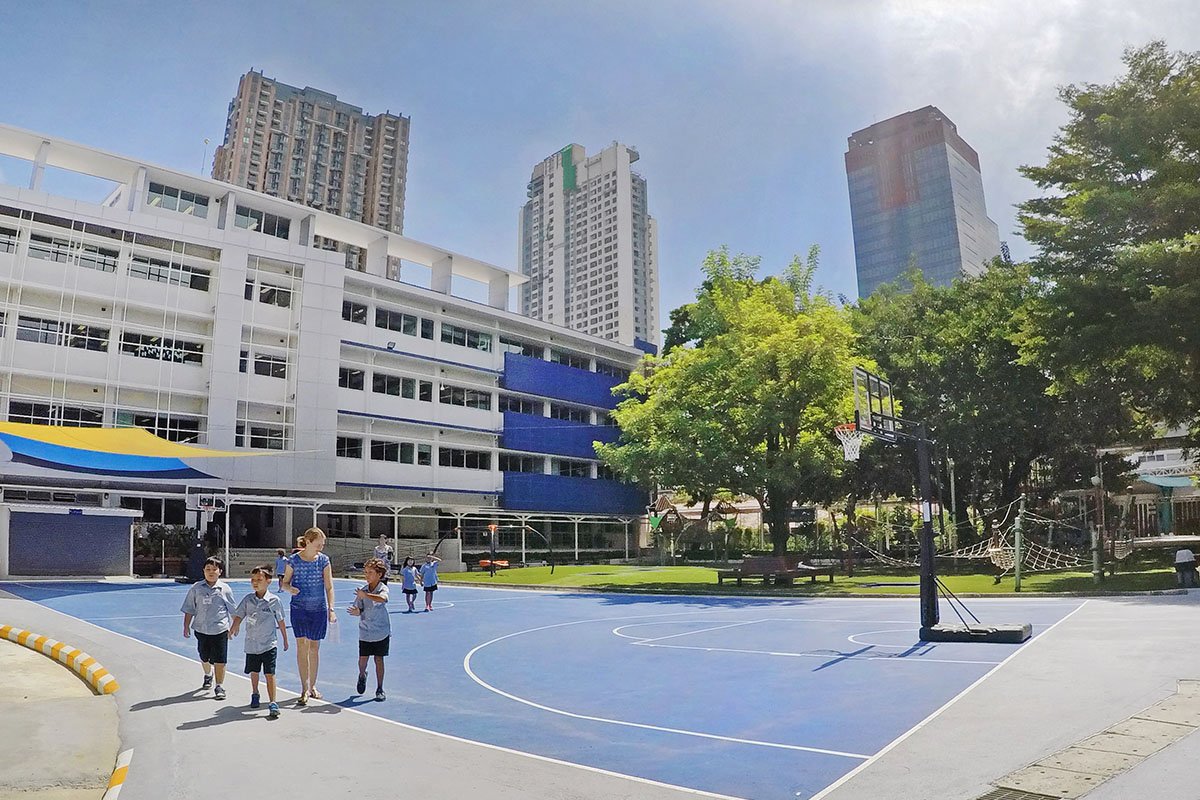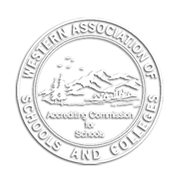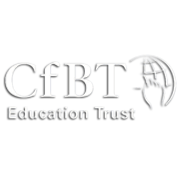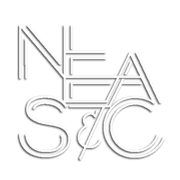(Updated for 2019) Browse through any forum related to Thailand and you’ll see it: a thread about teaching at international schools in Bangkok. As one of the most popular destinations for educators in the world, the city boasts over 100 international schools and kindergartens, including several that rank among the best in Asia. Despite their ubiquity, however, many aspiring teachers, and even experienced international educators, know little about them. The reality is that international schools in Thailand represent a highly diverse market that continues to expand rapidly, making it an ideal place to build a successful teaching career.
What Is an International School?
In the schools in which I’ve worked, I have frequently received résumés from hopeful teachers highlighting their skills in teaching English or ESL. Their enthusiasm, while understandable, reflects a fundamental misunderstanding of what international schools are. Unlike language institutes or tutoring centers, international schools offer the same comprehensive primary and secondary education as other public and private schools, including all academic subjects and extra-curricular activities.
Globally, international schools occupy a grey area, with no single definition existing between countries or educational organizations. Most commonly the term refers to a school that offers a curriculum other than that of its host country. Secondary to this, the dominant language of instruction is usually English, international ideals and philosophies are promoted, and the student body may be more diverse than local schools.
At the 2016 Alliance for International Education conference, held here in Bangkok, international education experts Mary Hayden and Jeff Thompson extended their previous research in identifying several different types of international schools, including those founded as extensions of national governments, those founded upon a particular philosophy and set of principles, and those created as for-profit entities. Yet the rapid global growth of international schools has blurred these lines in many cases, and a common understanding of their nature has yet to be established.
International Schools in Bangkok
Though they share some similarities to bilingual schools or English programs within private schools in Thailand, international schools must be specifically licensed as such through the Ministry of Education. Simply using the term does not grant that status.
Prior to the early 1990s, only three major English-language international schools existed in Thailand: International School Bangkok (ISB), Bangkok Patana School and Ruamrudee International School, as well as a handful of others. The small number resulted from the reluctance of the Thai government to permit more schools from opening, as well as the restriction against Thais attending them. When ISB initiated plans to relocate outside the city center, a group of parents worked with members of the United Nations to lobby the government to allow the opening of a new international school. This led to the establishment of NIST International School in 1992, as well as the decision to allow Thai students to attend international schools.
International schools in Bangkok began to appear at a rapid pace, and the MOE has currently granted licenses to approximately 180 schools across Thailand. At least four to five new international schools continue to open annually, while existing schools expand with additional campuses and facilities. In short, Bangkok has become one of the largest international school markets in the world, and continues to be one of the most attractive destinations for expatriate teachers.
What Is the Value of Teaching in an International School?

Working in international schools in Bangkok opens the doorway to a vast network. With a few years of experience under your belt, you will be able to work in countries around the globe. The world of international education can be quite small, particularly for those in larger schools, and you will begin to discover that this profession allows a high degree of transience. Whether you want to remain in Asia or travel the world, teaching in international schools offers that opportunity.

Though the potential earnings at the different international schools vary dramatically, many at least offer the ability to lead a very comfortable lifestyle while still saving nearly as much as you could in your home country. If you are able to land a position at one of the best schools, the savings potential can be staggering. Combined with the excellent benefits packages, these international schools provide a lifestyle that far exceeds what could be expected by teachers in public systems.

Beyond salaries and benefits, international schools provide a clear career path for aspiring educators. While some expatriates are content with English teaching or tutoring for a few years before returning to their home countries, some either are or aspire to be professional educators. Many international schools offer excellent professional development and networking opportunities, and allow the chance to interact with some of the most talented educators around the globe.
Choosing a School & International School Tiers
No teacher wants to work in a school that offers little support, few resources and no opportunity to grow professionally. Though there is no standard way to measure the quality of an international school, multiple indicators can be examined to at least provide a general sense of how well any particular school performs in relation to others, including accreditation status, resources, support systems, diversity and quality of learning (measured not only by standardized assessments, but through the impact of students). In most cases this type of comparison places international schools in one of three tiers: 1 (high), 2 (mid) or 3 (low), though it’s important to note that the tier in which a school is identified may correlate to its quality, but it does not predict it.
From an employment perspective, the more successful that schools become as seen through this lens, the better the pay and salaries they will provide to their faculty. Thus, while many teachers aim for positions at tier 1 schools, these tend to be the most competitive. In many cases a more viable career path is to gain employment at a tier 2 or even tier 3 school to gain experience, and later apply for positions at other international schools. Additionally, no school is perfect, and many teachers will thrive in any school regardless of its tier. Equally important, the very concept of the tier system can be as harmful as it can be helpful. Schools are organic organizations that grow and evolve over time. The current state of a school may be very different than where it was years in the past.
When considering whether a school is right for you, what matters most is whether you feel that a school’s culture is well-matched to your personal philosophy and goals, and simply whether you are happy being a part of it. Though tier 1 schools provide excellent pay and benefits, they’re often quite large, making it difficult for some to feel as if they fit, and the workload can be very demanding. Conversely, some smaller tier 2 or tier 3 schools may allow more close relationships with colleagues and students, as well as a slower pace. Ultimately, you should aim for the type of school that best matches your personality and career goals.

- Status: Most often not-for-profit
- Ownership: Typically owned by parents and operated as a foundation school
- Accreditation: National (ONESQA) and multiple international (CIS/NEASC/WASC/CfBT)
- Fees: High, ranging between THB 400,000 to 925,000 depending on the level
- Additional fees are usually required for enrollment as well
- Staffing: Typically employ Western teaching staff, but are willing to hire licensed teachers of any nationality
- Student Body: Set cap for any single nationality (20 – 30%)

- Status: Most often for-profit
- Ownership: Typically owned by a group of investors or a conglomerate
- Accreditation: National (ONESQA) and at least one international (CIS/WASC/NEASC/CfBT)
- Tuition Fees: Varied, ranging between THB 200,000 to 800,000 depending on the level
- Additional fees are usually required for enrollment as well
- Staffing: Usually employ Western teaching staff for core academic subjects and non-Westerners for others
- Student Body: Predominantly Thai (50 – 80%)

- Status: Exclusively for-profit
- Ownership: Typically owned by an individual or family
- Accreditation: Typically only has national accreditation through ONESQA
- Tuition Fees: Low, ranging between THB 80,000 to 300,000 depending on the level
- Few other fees are required for enrollment or may be waived
- Staffing: Usually employ non-Western teaching staff for most positions, or unlicensed Western teachers
- Student Body: Almost entirely Thai (80 – 100%)
Tier 1 Salary & Benefits
- Monthly Salary (Gross): THB 145,000 – 275,000
- THB 28,000 – 60,000 housing allowance or provided housing
- Annual airfare (following initial 2-year contract)
- Generous responsibility allowances
- Annual bonus equivalent to one or one and a half month’s salary
- Full health and dental insurance
- Pension/retirement fund or contribution
- Relocation/settling-in allowance
- Shared & personal professional development funds
Tier 2 Salary & Benefits (Highly Varied)
- Monthly Salary (Gross): THB 60,000 – 200,000
- THB 0 – 40,000 housing allowance or provided housing
- Annual airfare (following designated contract period)
- Varied responsibility allowances
- Annual bonus up to equivalent of one month’s salary
- Partial or full health insurance
- Pension fund sometimes provided
- Relocation/settling-in allowance sometimes provided
- Professional development fund
Tier 3 Salary & Benefits
- Monthly Salary (Gross): THB 40,000 – 90,000
- Housing usually not provided
- Annual airfare occasionally provided
- Minimal responsibility allowances
- Token annual bonus
- Minimal insurance provided
- Pension fund rarely provided
- Relocation/settling-in allowance rarely provided
- Limited professional development funding provided, if any
Tier 1 Typical Hire
- 4-10+ years of experience in international setting
- Bachelor’s, master’s or graduate diploma in education
- Almost always has teaching license in home country
- Exemplary performance in past positions, with strong references
Tier 2 Typical Hire
- 2-8+ years of experience
- In possession or pursuit of education qualification
- Often has a teaching license in home country
- Solid recommendations from previous employers
Tier 3 Typical Hire
- 0-4+ years of experience
- Bachelor’s degree in any subject
- Sometimes has a teaching license in home country
- Experience with children or ESL/EFL, sometimes in non-teaching fields
How Can a School’s Accreditation Status Be Verified?
A common concern among many teachers as they search for a position is whether schools that extend offers are in fact accredited by an international organization. Determining this is a simple process: each accrediting body provides a full directory of accredited schools on its website.
How Do International Schools Recruit?
The hiring process for international schools in Bangkok varies as much as the schools themselves. In some cases hiring is driven by time or budget constraints, while in others the aim is to consistently recruit the best international educators from around the globe. Though most international schools in Bangkok follow the Western calendar, knowing how and when differing types of schools recruit is crucial to ensuring that your application is considered.
Tier 1 schools begin their hiring process as early as October or November in preparation for the next school year. Their websites will usually announce the timeline and will accurately display current openings (often through a dedicated recruitment program) as they become available. Most will attend major recruitment fairs, and their hiring is usually conducted there or through direct selection. Hires often have experience in international schools abroad. Keep in mind that turnover at these schools tends to be low, between 12% to 18%, meaning they have very specific positions in mind when recruiting.
Tier 2 schools tend to advertise positions by early January to March, though the range of dates can be even larger given the significant differences between many of the schools that fall into this group. They often rely on a combination of local and international advertising. While this is typically done online, they may occasionally post in some print media in Bangkok as well, including major newspapers and other publications. It is sometimes easier to enter these schools as an English support teacher given their larger ELL populations.
Tier 3 schools often accept applications year round, and may be more inclined to interview and hire applicants even in the summer before the semester begins. Unlike the tier 1 or tier 2 schools, their open positions can be found not only on their websites and in local newspapers, but also in online forums such as ajarn.com. Though it can be significantly easier to find a job at these schools, they will still be more selective than other types of educational institutions.
One of the easiest ways to find out if schools have openings is through their websites. Most international schools in Thailand are members of the International Schools Association of Thailand (ISAT), which lists all of its member schools on its website. ISAT also requires that its members have, or be in the process of acquiring, accreditation through CIS, WASC, NEASC or CfBT. Though not a guarantee of excellence, this at least ensures a minimum level of quality.
In addition to posting positions on their websites, many of the large tier 1 schools tend to hire teachers through recruitment ads and fairs organized by external companies, most commonly International School Services and Search Associates. The appointment of school leaders, excluding internal appointments, occurs almost exclusively through this type of process.
While the best options for qualified teachers are through the above services, several other agencies do work with international schools in Thailand, including TES, Teacher Horizons and, less commonly, TIC Recruitment, World Teachers and Edvectus. Regardless of whether you opt for a agency of this type or apply directly (if that option is available), it is crucial to follow any instruction that is provided. In international education it can be surprising how often applicants fail to do so!
Pathways to Employment at an International School in Bangkok
Professional educators, particularly those with teaching licenses in their home countries and several years of teaching experience, needn’t worry about their ability to attract the attention of schools. However, others without the same qualifications often face a less direct path. Though it can be difficult, finding a position at a good international school in Bangkok is still possible through several methods.

Frequently Asked Questions
Several common questions usually arise when people consider transitioning into international education, and in many cases it can be difficult to find accurate information. If you would like to know about a particular aspect of international schools in Bangkok that is not answered here, feel free to leave a comment or contact me directly.
Are demonstration (or laboratory) schools considered international schools? What is the difference?
Despite using English as the medium of instruction for most subjects, schools of this type are not international schools. Though all are overseen by the Office of the Private Education Commission (OPEC), two aspects separate them:
- A license to operate as a private school versus a license to operate as an international school from the Ministry of Education
- A blended curriculum based on the Thai national standards and a foreign curriculum, delivered in English, versus a purely foreign or international curriculum
Since their only national accreditation is through the Office for National Education Standards and Quality Assessment (ONESQA), international schools must typically seek accreditation from outside Thailand for their curricula, which fall outside the scope of the Thai standards. While this does not necessarily mean that all schools do so, most make the attempt in order to become members of the International Schools Association of Thailand and to attract more students. Though some bilingual and demonstration schools also seek foreign accreditation, they face less pressure to do so.
In practice the distinction makes little difference when comparing the best private schools to small tier 3 international schools. Both can offer a similar level of quality, and the former can in fact exceed the latter in some cases.
If a school pays less or charges less, does that mean it's not a real international school?
No. The reality is that some international schools charge substantially less than others and as a result cannot match the salaries of the top schools. This absolutely does not mean that they’re bad schools, nor does it negate their international school status if this has been granted by the Ministry of Education. There is undoubtedly a strong correlation between quality and the amount that is invested into a school, as well as its source of financing. However, a teacher or a child may have an excellent experience in a small tier 3 school, or conversely may have a very poor one in a school with an excellent reputation.
What the best schools ultimately provide is an environment in which layers of support are in place to ensure that the possibility of teachers or students falling through the cracks is minimized, as well as a far greater range of learning opportunities. Simply put, the higher pay and benefits also attract more qualified applicants on average, which directly impacts the quality of learning.
Will an international school hire me if...?
The bottom line is that all of the information presented here will not necessarily apply in every situation. While tier 1 schools usually don’t hire many teachers who are already in Thailand, they still do so occasionally. Though tier 3 schools may be seeking a Westerner first and foremost regardless of background, some might be more selective in demanding qualified applicants. A foreign teaching license will undoubtedly better your chances of being hired by a top school, but those schools will also hire teachers with a specialized degree if you happen to match a particular need, and will then provide the necessary training.
Receiving an offer of employment from a good school is a combination of timing, opportunity and preparation. If you are seriously considering international teaching as a career, the best thing you can do is determine exactly what your goals are, and map out the path that you think will get you there. Keep learning, seek out and network with other educators, and learn to build your own brand.
How can I get a Western qualification in education while living in Bangkok?
It is easy to find international graduate programs in education (and other fields) at Thai universities. However, international schools tend to favor Western qualifications, which are ultimately more useful if you ever decide to return home as well. Multiple options are available to earn a valid Western diploma or degree in education while remaining in Thailand. All are accepted by the Thai Ministry of Education (MOE) and Teachers’ Council in the issuance of Thai teaching licenses.
While the American programs do provide qualifications in education, it’s important to note that they do not include state licensure, as requirements varies from state to state and typically include teaching observations. This list also does not include full online courses, as the MOE has in the past been reluctant to consider them as valid for licensure.
- Framingham State University offers a Master of Education in International Teaching onsite at Wells International School and Bangkok Christian College.
- University at Buffalo (SUNY) offers a Master of Science in Multidisciplinary Studies onsite at NIST International School.
- The College of New Jersey offers multiple graduate certifications onsite at NIST International School, which can lead to a certificate of eligibility to pursue a New Jersey teaching license.
- Endicott College offers a Master of Education in International Education onsite at Bangkok Prep.
- Keele University previously offered an MBA in Education at Harrow International School (though the program is currently defunct).
- University of Bath maintains a study centre at Bangkok Patana School, offering courses that can lead to a Master of Arts in Education or an International Baccalaureate Education Certificate.
- The University of Nottingham offers a blended online/onsite Postgraduate Certificate in Education.
Though on-site programs are generally preferable, it’s also possible earn a United States teaching license and/or a master’s in education through an online program: Teach-Now. Despite being online, however, the cost can be just as much as the on-site programs or more in some cases (USD $6,000 for the licensure program and $13,000 for the full master’s). The value of this program versus another would vary depending on your career goals, including whether you intend to remain in Thailand and Asia or eventually relocate.
What is needed to receive a teaching license in Thailand?
There is an enormous amount of misinformation about the issuance of teaching licenses to foreigners in Thailand. As as of 2017, the MOE and Kurusapa (Teachers’ Council of Thailand) maintain the following standards and policies:
- Teachers with licenses in their home countries and/or a degree/diploma in education
- Upon arrival in Thailand, a temporary license is issued.
- During the first year of service, the school should be monitoring and assessing the teacher’s performance.
- Upon satisfactory completion of the first year, a permanent license (valid for five years) is issued.
- Teachers without licenses in their home countries or a degree/diploma in education
- Upon arrival in Thailand, a teaching license waiver is issued for a period of two years.
- Kurusapa can issue further extensions based on the school type:
- International schools can acquire two further two-year extensions for the teacher provided that he/she is pursuing the necessary qualification for a permanent license, and can provide documentation to support that.
- All other schools can acquire one further two-year extension for the teacher provided that he/she is pursuing the necessary qualification for a permanent license, and can provide documentation to support that.
As with most other policies in Thailand, exceptions can and do occur, and Kurusapa reserves the right to issue waivers and licenses, or deny them. However, these are the current official regulations. It is also worth noting that in order to avoid this requirement, some schools will apply for a work permit under the category of educational personnel, which does not require a teaching license. However, this is technically illegal in cases in which that individual is assigned teaching duties.
Is the workload at a top school worth the higher salary?
This is entirely up to the individual. Top schools do tend to have a more intensive atmosphere, but they also provide much more support in many cases. A common misperception is that the working hours are significantly longer and that little freedom is given. This is inaccurate in both respects. The difference lies in the degree of expectations. Top schools expect teachers to take part in frequent collaborative planning sessions, professional development and other activities; this means virtually no downtime during work hours. If you enjoy a more dynamic, fast-paced work environment, these schools are definitely a good option.
Those who prefer a slower pace would likely enjoy working in a smaller school. There may be frustrations in other respects, but many schools of this type provide a relaxed environment in which you’re free to pursue your own interests and offer more personal support to your students.







